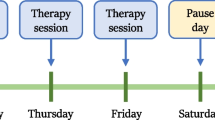Abstract
The efficient radiotherapy patient scheduling, within oncology departments, plays a crucial role in order to ensure the delivery of the right treatment at the right time. In this context, generating a high quality solution is a challenging task, since different goals (i.e., all the activities are scheduled as soon as possible, the patient waiting time is minimized, the device utilization is maximized) could be achieved and a large set of constraints (i.e., every device can be used by only one patient at time, the treatments have to be performed in an exact time order) should be taken into account. We propose novel optimization models dealing with the efficient outpatient scheduling within a radiotherapy department defined in such a way to represent different real-life situations. The effectiveness of the proposed models is evaluated on randomly generated problems and on a real case situation. The results are very encouraging since the developed optimization models allow to overcome the performance of human experts (i.e., the number of patients that begin the radiotherapy treatment is maximized).
Similar content being viewed by others
References
Barendsen GW (1982) Dose fractionation, dose rate and isoeffect relationships for normal tissue responses. Int J Radiat Oncol Biol Phys 11:1981–1997
Cayirli T, Veral E (2003) Outpatient-scheduling in health care: a review of the literature. Prod Oper Manag 12(4):519–549
Cayirli T, Veral E, Rosen H (2006) Designing appointment scheduling systems for ambulatory care services. Health Care Manag Sci 9(1):47–58
Decker K, Li J (1998) Coordinated hospital patient scheduling. Proceedings of the 3rd international conference on multi-agent systems. ICMAS-98, Paris, France
Hannebauer M, Miller S (2001) Distributed constraint optimization for medical appointment scheduling. Fifth international conference on autonomous agents (AGENTS 2001), Montreal, Canada
Harper PR, Gamlin HM (2003) Reduced outpatient waiting times with improved appointment scheduling: a simulation modelling approach. OR Spectr 25:207–222
Johnston L (2000) Colon & rectal cancer: a comprehensive guide for patients & families. O’Reilly & Associates Inc., Sebastopol
Kumar AD, Kumar AR, Kekre S, Prietula MJ, Ow PS (1989) Multi-agent systems and organizational structure: the support of hospital patient scheduling. In: Proceedings of the leading edge in production and operations management. SC, USA
Lim, Vinoid SK, Bull C, Brien PO, Kenny L (2005) Prioritization of radiotherapy in Australia and New Zealand. Australas Radiol 49:485–488
Marinagi C et al. (2000) Continual planning and scheduling for managing patient tests in hospital laboratories. AIM 2000, pp 139–154
Nealon JL, Moreno A (2003) Agent-based applications in health care. In: Applications of software agent technology in the health care domain. Whitestein series in software agent technologies. Birkhäuser Verlag, Basel, Switzerland, pp 3–18
Pinedo M (2002) Scheduling: theory, algorithms and systems, 2nd edn. Prentice-Hall, NJ
Pinedo M (2005) Planning and scheduling in manufacturing and services. Springer series in operations research and financial engineering
Preater J (2001) A bibliography of queues in health and medicine. Keele Math Res Rep 01–1
Ragaz J, Olivotto IA, Spinelli JJ, Phillips N, Jackson SM, Wilson KS (2004) Locoregional radiation therapy in patients With high-risk breast cancer receiving adjuvant chemotherapy: 20-year results of the British Columbia Randomized Trial. J Natl Cancer Inst 97:116–26
Thames HD, Withers HR, Peters LJ, Fletcher GH (1982) Changes in early and late radiation responses with altered dose fractionation: implications for dose–survival relationships. Int J Radiat Oncol Biol Phys 8:219–226
Turner KJ, Qian B (2002) Protocol techniques for testing radiotherapy accelerators. In: Vardi M, Peled D (eds) Proc formal techniques for networked and distributed systems (FORTE XV). Springer, Berlin
Author information
Authors and Affiliations
Corresponding author
Rights and permissions
About this article
Cite this article
Conforti, D., Guerriero, F. & Guido, R. Optimization models for radiotherapy patient scheduling. 4OR 6, 263–278 (2008). https://doi.org/10.1007/s10288-007-0050-8
Received:
Revised:
Published:
Issue Date:
DOI: https://doi.org/10.1007/s10288-007-0050-8




